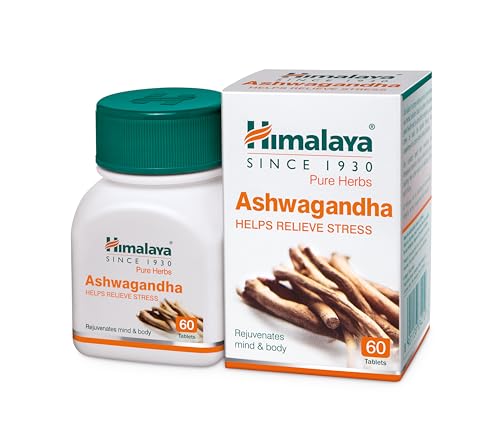Sex and Logevity(amazon.in)

The Link Between Sex and Longevity
The relationship between sexual activity and longevity has garnered substantial interest in the field of health and wellness. A plethora of scientific studies indicate that an active sexual life is associated with various health benefits that contribute to increased lifespan. For instance, research published in notable medical journals suggests that individuals engaging in regular sexual activity tend to enjoy improved cardiovascular health. This is attributed to the physiological processes during sexual activity, where the body releases endorphins and other hormones that not only enhance mood but also improve blood circulation, thereby reducing the risks of heart-related ailments.
In addition to physical health, sexual engagement appears to play a pivotal role in mental well-being. Several studies have demonstrated that a satisfying sex life can alleviate symptoms of anxiety and depression, contributing to better overall mental health. The emotional connection fostered through sexual intimacy also reinforces relational bonds, which are essential for social support as individuals age. This highlights a synergistic relationship where physical intimacy serves to strengthen emotional ties, thus enhancing overall quality of life.
Moreover, sociocultural factors significantly influence perceptions of sex and aging. In societies that maintain an open dialogue about sexuality, older adults report higher satisfaction and activity levels in their sexual lives. Conversely, cultures that stigmatize sexual expression in later life may witness a decline in the sexual health of elderly individuals, undermining their overall well-being and longevity. Expert opinions also underscore the importance of addressing these sociocultural barriers to promote healthier sexual practices among aging populations.
Overall, the evidence presents a compelling argument for the connection between sex and longevity. By prioritizing sexual health, individuals may not only enhance their physical and mental well-being but also potentially extend their lifespan. Engaging in discussions about sexual health and addressing societal norms surrounding it can lead to improved health outcomes for older adults, ensuring they enjoy fulfilling lives well into their later years.
Understanding the Concerns: Longevity and Sexual Health
As individuals age, various factors can significantly influence their sexual health and longevity. A common concern among older adults is the decline in libido, which may stem from hormonal changes, medical conditions, or psychological factors. Decreased sexual desire is often compounded by physical limitations that can emerge with age. These limitations may include chronic pain, mobility issues, or cardiovascular problems, which can deter individuals from engaging in or enjoying sexual activity. Therefore, understanding these concerns is paramount for fostering a healthier approach to sexuality and aging.
Moreover, societal stigmas related to aging and sexual activity can exacerbate feelings of inadequacy or embarrassment, leading to isolation and decreased self-esteem. Many older adults may feel that their sexual needs are overlooked or ridiculed by society, contributing to a reluctance to discuss or pursue sexual health actively. Performance anxiety, an issue that can affect individuals of all ages, can also become more pronounced in older adults. Concerns about not meeting expectations or the fear of perceived body image changes may hinder both desire and performance during sexual encounters.
In addition to psychological factors, various medical issues are common among seniors that directly impact sexual wellness. Conditions such as diabetes, hypertension, and prostate enlargement can lead to decreased arousal, erectile dysfunction, or other sexual health concerns. Addressing these medical issues with a healthcare provider is crucial as they can often be managed or treated effectively. There are also various strategies that older adults can adopt to maintain their sexual health, including open communication with partners about needs and concerns, seeking appropriate medical treatment, and exploring supplements that may enhance sexual function and overall wellness.
Benefits of Maintaining an Active Sex Life
Engaging in an active sex life as one ages offers a multitude of benefits that can significantly enhance overall well-being. Firstly, regular sexual activity contributes to physical fitness. Sexual intercourse is a form of exercise that can improve cardiovascular health, build muscle strength, and increase endurance. It is noted by healthcare professionals that couples who are sexually active often enjoy greater levels of physical fitness, as this activity can elevate heart rates much like traditional forms of exercise.
In addition to physical health benefits, maintaining an active sex life is proven to reduce stress. Sexual intimacy releases endorphins and oxytocin, hormones known for their role in promoting a sense of relaxation and emotional well-being. This natural reduction in stress levels also correlates with improved mood and mental health. An active sex life fosters positive interactions between partners, often leading to increased feelings of happiness and satisfaction in the relationship.
Moreover, enhanced intimacy with one’s partner is a notable advantage of being sexually active. Finding opportunities for connection and tenderness through sexual activity leads to deeper emotional bonds and a stronger partnership. Healthcare professionals emphasize that such intimacy can be crucial as partners navigate the challenges of aging together.
Furthermore, there is growing evidence suggesting that sexual activity may bolster the immune system and improve heart health. Regular engagement in sex has been linked to higher levels of immunoglobulin A, an antibody that plays a vital role in the immune system. Additionally, sexual activity has been found to lower the risk of heart disease, contributing positively to longevity.
Sleep quality is yet another benefit associated with an active sex life. The relaxation and satisfaction that follow sexual activity often lead to deeper, more restorative sleep cycles. Couples report finding it easier to unwind and enjoy uninterrupted rest after being intimate. The combination of these factors illustrates the myriad of advantages that maintaining an active sex life can offer as individuals age.
The Role of Supplements: Will They Work for You?
In recent years, the market has seen an influx of supplements claiming to enhance sexual health and longevity. These products range from herbal remedies to vitamins and specialized dietary supplements. However, it is crucial to approach these claims with a discerning eye, as not all supplements deliver on their promises. Numerous studies have explored the efficacy of various supplements, but results can vary significantly depending on individual health conditions and specific formulations.
Herbal remedies such as ginseng, maca root, and tribulus terrestris have been traditionally used to support sexual health. Research indicates that ginseng, for example, may improve erectile function and sexual satisfaction in men. Maca root has also gained attention for its potential to boost libido and enhance energy levels, although more extensive studies are needed to validate these claims fully. On the other hand, tribulus terrestris is often marketed for increasing testosterone levels, yet scientific support for its effectiveness remains limited.
Vitamins and minerals, including zinc and vitamin D, play significant roles in sexual health, with studies suggesting their supplementation may benefit overall vitality and hormonal balance. Zinc, in particular, has been linked to testosterone production, while adequate levels of vitamin D are associated with improved sexual function in both men and women. However, excessive intake of these vitamins can lead to adverse effects, highlighting the importance of moderation and professional guidance.
It is essential to evaluate the quality of any supplement by sourcing them from reputable manufacturers. Look for products that have undergone third-party testing, ensuring the absence of harmful contaminants. Additionally, consulting with a healthcare professional before embarking on any new supplement regimen is advisable to ensure it aligns with individual health needs and avoids contraindications with any existing medications or conditions.



